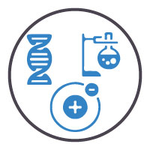
Sports Psychology Course: Fees, Duration, Colleges, Syllabus, Career Options
What is Sports Psychology
Sports Psychology combines psychology and sports science to improve focus, motivation, and recovery. Professionals in this field work with athletes, coaches, and teams to support mental well-being and maximise performance on and off the field.
This discipline examines how psychological factors, such as stress, anxiety, self-confidence, and concentration, influence physical performance. It also helps athletes manage pressure, injuries, and competition-related challenges. Sports psychologists employ goal setting, imagery, and cognitive-behavioural therapy to foster resilience and enhance peak performance under stress.
Students interested in this field can pursue academic courses that provide theoretical and practical training in psychology, human physiology, sports science, and counselling. Degrees and diplomas in Sports Psychology open doors to careers in sports organisations, rehabilitation centres, educational institutions, and professional athletic teams.
Sports Psychology Highlights
Sports Psychology is an emerging academic field blending psychology and sports science to improve athletic performance and mental well-being. The discipline offers structured degree and diploma programmes across India, with growing career opportunities in coaching, sports institutions, and academic setups. Here are the key highlights:
Particulars | Values |
Branch Name | Sports Psychology |
Degree | |
Duration | UG: 3–4 years PG: 1-2 years |
Eligibility | UG: 10+2 with any stream PG: Bachelor’s in Psychology or Science with a minimum of 50 per cent marks |
Admission Process | Entrance Exam (CUET‑PG), Merit-based, Institute-specific |
Course Fees | Rs. 15,000 to Rs. 3 Lakhs |
Job Roles | Sports Psychologist, Performance Consultant, Lecturer, Rehabilitation Counsellor, Mental Conditioning Coach, Sports Counsellor |
Average Salary | Rs. 5 LPA to Rs. 16 LPA |
Top Recruiters | Sports Authority of India, National Teams, Private Sports Clinics, Universities, Armed Forces |
Specialisations or Similar
Sports Psychology does not offer formally specified specialisations at the degree or diploma level. However, students may explore focus areas such as performance enhancement, rehabilitation, or exercise psychology through elective subjects or research topics. These are offered as part of the core curriculum rather than separate specialisation tracks. Below are some of the topics that are commonly covered:
Performance Enhancement Psychology | Exercise Psychology |
Team and Group Dynamics | Motor Learning and Control |
Clinical Sports Psychology | Youth and Developmental Sports Psychology |
Rehabilitation and Injury Psychology | Cognitive and Behavioural Interventions in Sports |
Top Sports Psychology Colleges in India
Several reputed institutions across India offer Sports Psychology at both undergraduate and postgraduate levels. These colleges highlight academic excellence, practical exposure, and research. Many collaborate with sports bodies or operate dedicated sports science departments, providing students with valuable real-world experience. Below are some of the top colleges in this field.
Rs. 1.31 Lakhs | |
Rs. 1.58 Lakhs | |
- | |
- | |
- | |
- | |
Tamil Nadu Physical Education and Sports University, Chennai | - |
Jain Deemed to be University, Bangalore | - |
Sports and Management Research Institute | - |
NIDESSC | - |
Note: The colleges provided above can be for any particular Sports Psychology Course (Diploma & Degree).
Eligibility Criteria (UG & PG) of Sports Psychology
To pursue a course in Sports Psychology, students must meet specific academic requirements at both undergraduate and postgraduate levels. While the exact eligibility may differ slightly among universities, most follow a standard framework across India. Below are the eligibility criteria for both UG and PG programmes.
Undergraduate Level
At the undergraduate level, students interested in Sports Psychology usually opt for degrees like a BSc in Psychology, a BSc in Sports Science, or a BA in Psychology with a focus on sports-related subjects. Candidates must have a background in science or the arts, with psychology as a subject in some cases.
- Candidates must have completed 10+2 from a recognised board.
- They should have scored a minimum of 50 per cent aggregate marks (relaxation may apply for reserved categories).
- Science stream (with Biology or Physical Education) is preferred, though some institutions accept students from all streams for BA programmes.
Entrance Exams for Undergraduate Level
Most universities offer admission to undergraduate Sports Psychology programmes through merit or entrance exams. While national-level tests like CUET UG are widely accepted, some institutes may also conduct their own entrance exams. Admission criteria may vary, so students should check the specific requirements of the universities they wish to apply to.
Exam Name | Level | Conducting Body | Exam Schedule |
National Level | NTA |
Postgraduate Level
For postgraduate courses such as the MSc in Sports Psychology, candidates must hold a bachelor’s degree in Psychology or related disciplines. Some institutions also accept degrees in Physical Education or Sports Science, provided the candidate meets the academic performance criteria.
- Candidates must have completed a Bachelor’s degree (BA/BSc) in Psychology, Physical Education, or related subjects from a recognised university.
- They must have obtained a minimum of 50 per cent aggregate marks in their qualifying examination.
- For PhD admission, candidates must have completed an M.Sc. or M.Phil in Sports Psychology and Sociology from a recognised institution.
Entrance Exams for Postgraduate Level
Admissions to postgraduate programmes in Sports Psychology are primarily based on entrance exams. While many universities accept scores from national-level tests like CUET PG, others may conduct their own entrance exams. The selection process can vary, so candidates should check the specific admission criteria of the institution they are applying to.
Exam Name | Level | Conducting Body | Exam Schedule |
National Level | NTA |
Scope of Sports Psychology in India and Abroad
The scope of Sports Psychology in India is expanding with the growing focus on mental health and performance enhancement in sports. From grassroots to elite levels, demand is rising for professionals who can support athletes in coping with pressure, improving focus, and maintaining motivation during competitions and recovery phases.
Globally, countries like the United States, Australia, and the UK have well-established career paths in Sports Psychology. With greater awareness and structured sports programmes, international opportunities exist in coaching, rehabilitation centres, research, and high-performance sports environments, especially for those students holding advanced degrees or specialised training.
Course Subjects
The course syllabus of Sports Psychology is designed to prepare students with both theoretical understanding and practical exposure to psychological principles in sports. Undergraduate programmes cover basics like introduction to psychology and sports science, while postgraduate courses delve deeper into areas such as counselling, performance enhancement, and research. Below are syllabi for UG and PG.
UG Syllabus
At the undergraduate level, there is no standalone Sports Psychology available in India. Instead, Sports Psychology is integrated into broader degrees like a BSc in Sports Science or a BSc in Sports Exercise. Below is the BSc in Sports Science syllabus from Jain Deemed-to-be University, Bangalore, which includes core Sports Psychology subjects within its academic curriculum.
Semester 1 | Semester 2 |
Human Anatomy | Human Anatomy |
Human Physiology | Human Physiology |
Basics of Biochemistry | Pharmacology |
Introduction to Exercise and Sports Sciences | Medical terminology, Record keeping, Introduction to exercise, fitness and coaching |
English Language and Communication for Health | Mind Management and Human Values – 2 |
Mind Management and Human Values | English Composition, Writing |
Hindi/Sanskrit/Kannada/Tamil/Telugu | - |
Semester 3 | Semester 4 |
Biomechanics | Cognitive & Sports Psychology |
Motor control, Learning and Skill acquisition | Fundamentals of Physiotherapy |
Exercise Programming | Exercise Physiology |
Exercise and Sports Medicine | Fundamentals of Sports Coaching & Training |
Sports Neuroscience | Exercise Therapy/Exercise Programming |
Basics of Microbiology and Pathology | Fundamentals of Nutrition |
Basics of computer science and Introduction to technology | Theory of Sports and Games |
Semester 5 | Semester 6 |
Exercise Testing, Exercise Prescription | Athletic Injuries and Management |
Essentials of strength and conditioning | Physiological Principles of Rehabilitation |
Musculoskeletal Biomechanics | Guided Practical Training 1 Project Centric Learning with Simulation Lab |
Biostatistics and Research Methodology | Nursing, First Aid, CPR, BLS Emergency Response |
Sports – Law and Ethics | - |
Semester 7 & 8 | |
Elective Subjects | Elective Mentored research |
Postgraduate Syllabus
In the PG syllabus, students study and understand the psychological dynamics of sports, including cognitive psychology, counselling, mental skills training, and athletic injury rehabilitation. The curriculum blends theory, practicum, electives, and research work. Below, we have mentioned the syllabus of the MSc in Sports Psychology from Tamil Nadu Physical Education and Sports University.
Semester 1 | Semester 2 |
Cognitive Psychology | Psychological Aspects of Sports Performance |
Principles of Sport Psychology | Neuropsychology |
Research Methodology | Statistics in Social Science |
Coping with Stress / Emotional Intelligence (Discipline Specific Elective) | Motor Learning and Psychology of Coaching / Psychometrics (Discipline Specific Elective) |
Interdepartmental Elective – I (Generic) | Interdepartmental Elective – II (Generic) |
Psychological Assessment Practicum - I | Psychological Assessment Practicum - II |
Soft Skill – I ( Communication Skill) | Soft Skill – II ( Basics of Computer Applications) |
Semester 3 | Semester 4 |
Fundamentals of Counselling Skills | Counseling and Behavior Modification Techniques |
Psychology of Athletic Injury and Rehabilitation | Sports for the Challenged |
Psychological Preparation and Mental Skills Training | Athletic Psychopathology |
Team Cohesion and Group Dynamics in Sports / Psychotherapy (Discipline Specific Elective) | Positive Psychology / Introduction to Sports Sociology (Discipline Specific Elective) |
On-field Sport Psychology Assessment- Practicum - III | On-field Sport Psychology Assessment- Practicum - IV |
Softskill – III ( Life Skills Management ) | Thesis |
Internship | Viva-Voce |
- | Softskill – IV (Yoga & Meditation) |
- | Extension Activity |
Careers in Sports Psychology
Sports Psychology is an emerging field that combines principles of psychology with athletic performance to support the mental well-being of athletes and improve their competitive edge. As awareness around mental health in sports continues to grow, trained professionals in this domain are increasingly sought after across various levels of sport.
These specialists work on building motivation, focus, emotional control, and team dynamics, playing an important role in both individual and team sports environments. Their insights help prevent burnout, manage performance pressure, and support rehabilitation after injuries.
In India and internationally, accredited universities and institutions offer diploma and degree courses in Sports Psychology. Graduates can pursue careers as Sports Psychologists, Athletic Counsellors, Performance Consultants, or Mental Skills Trainers with sports teams, educational institutions, rehabilitation centres, and national sports bodies.
Upcoming trends
Sports Psychology is gaining momentum with increased focus on athletes' mental well-being and performance enhancement. Emerging practices combine neuroscience, technology, and psychological training to create more effective strategies for motivation, recovery, and mental resilience. These innovations are helping athletes perform consistently and cope with competitive pressure in healthier ways.
- Neurofeedback Training to improve focus and cognitive control
- Mental Health Screening integrated into athlete wellness programmes
- Virtual Reality (VR) for visualisation and mental rehearsal
- Wearable Tech for monitoring stress and mental fatigue
- Mindfulness and Meditation for Emotional Regulation
- Cognitive Behavioural Therapy (CBT) for performance anxiety
- Data Analytics to personalise psychological interventions
Job Profiles and Top Recruiters
Sports Psychology offers a dynamic career path blending psychology with athletic performance and mental well-being. With growing awareness around mental health in sports, professionals in this field are increasingly in demand across teams, clinics, academic institutions, and rehabilitation centres. Here are some common job roles in Sports Psychology:
Job Profile | Description |
Sports Psychologists | Sports Psychologists help athletes enhance performance, cope with pressure, and manage mental blocks. They design strategies for motivation, focus, and emotional control during training and competition. |
Performance Consultants | Performance Consultants work with teams or individuals to optimise mental skills for consistent high performance. They use goal-setting, visualisation, and stress-reduction techniques to build mental resilience. |
Rehabilitation Counsellors | Rehabilitation Counsellors assist injured athletes in coping with emotional and psychological challenges during recovery. They facilitate adjustment to temporary or permanent changes in athletic abilities. |
Mental Conditioning Coaches | Mental Conditioning Coaches train athletes to improve focus, confidence, and concentration. They often collaborate with coaches and trainers to incorporate mental drills into practice sessions. |
Lecturers teach sports psychology at colleges or universities and mentor students pursuing careers in the field. They also contribute to research in areas like motivation, group dynamics, and performance anxiety. | |
Research Analysts | Research Analysts conduct studies on psychological variables affecting sports performance and well-being. They analyse data, publish findings, and contribute to evidence-based practices in the field. |
Sports Counsellors | Sports Counsellors help athletes manage stress, pressure, and emotional challenges related to performance and competition. They offer mental health support, goal-setting strategies, and coping techniques to enhance overall well-being and athletic focus. |
Top Recruiters
- Sports Authority of India (SAI)
- Indian Olympic Association (IOA)
- Board of Control for Cricket in India (BCCI)
- Indian Super League (ISL)
- Pro Kabaddi League
- Tata Institute of Social Sciences (TISS)
- National Sports University
- Jain University
- Apollo Hospitals
Average Salary
Sports Psychology offers competitive salary opportunities for both freshers and experienced professionals. With the growing focus on mental health and athlete performance, skilled sports psychologists are in demand across sports organisations, educational institutes, and healthcare settings. Salaries vary based on qualification, experience, employer, and location. Below are the average annual salaries for common job profiles in this field:
Job Profile | Average Salary (LPA) |
Sports Psychologists | Rs. 7.5 LPA |
Performance Consultants | Rs. 16.3 LPA |
Rehabilitation Counsellors | Rs. 8.8 LPA |
Mental Conditioning Coaches | Rs. 7.9 LPA |
Lecturers | Rs. 4.9 LAP |
Research Analysts | Rs. 5.2 LPA |
Sports Counsellors | Rs. 5.5 LPA |
Source: AmbitionBox, SalaryExpert
Required Skillset for Sports Psychology
To succeed in Sports Psychology, professionals need a mix of psychological knowledge, interpersonal abilities, and observational skills. These competencies help support athletes’ mental well-being, improve performance, and aid in recovery. Compassion, patience, and scientific understanding are essential for making a positive impact. Here are some essential skills for this field:
- Understanding of Psychological Theories and Behavioural Science
- Athlete Counselling and Motivation Strategies
- Knowledge of Human Physiology and Sports Science
- Stress and Anxiety Management Techniques
- Cognitive Behavioural Therapy (CBT) Applications
- Mental Skills Training and Visualisation Techniques
- Research Methodology and Statistical Analysis
- Strong Communication and Listening Skills
- Empathy, Confidentiality, and Ethical Practice
- Team Collaboration and Coaching Support
Course Curriculum for Sports Psychology
The Sports Psychology curriculum integrates psychological theory with applied sports science to develop mental health strategies for athletic performance. Students explore areas like motivation, counselling, stress management, and injury recovery, while also participating in practical sessions, fieldwork, and case studies. Key areas covered include:
- Foundations of Sport and Exercise Psychology
- Psychological Aspects of Athletic Performance
- Counselling and Behaviour Modification Techniques
- Stress, Anxiety, and Emotional Regulation
- Team Dynamics and Leadership in Sports
- Psychology of Injury and Rehabilitation
- Research Methods and Statistical Analysis
- On-field Assessment and Practical Training
Frequently Asked Questions (FAQs)
Question: What kind of job roles are available after studying Sports Psychology?
Answer :
You can work as a sports counsellor, mental coach, or psychologist in teams, hospitals, gyms, military setups, or academic institutions.
Question: Are internships or practical experiences important in this field?
Answer :
Absolutely. Practical training through internships and workshops is essential to apply concepts in real sports environments.
Question: Can I pursue Sports Psychology without a background in science?
Answer :
Yes. Many universities accept students from arts or science backgrounds. For PG, a degree in Psychology or related fields is usually needed.
Question: Is Sports Psychology a good career option in India?
Answer :
Yes, it's a growing field with rising demand in schools, sports teams, and private academies focusing on athlete mental health.
Question: What exactly does a sports psychologist do?
Answer :
Sports psychologists help athletes improve focus, reduce anxiety, build mental strength, and stay motivated to enhance overall performance and well-being.























